Pandemic Lessons Spotlighted at Jindal School’s Business Deans Conference
Pandemic Lessons Spotlighted
at Jindal School’s Business Deans Conference
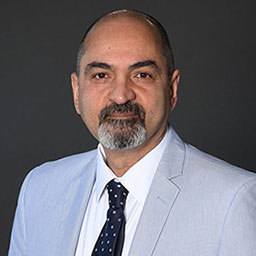
More than 125 associate and assistant deans representing business and management schools in 88 universities recently attended the 2022 Undergraduate Deans Conference, presented by the Naveen Jindal School of Management. Participants at the March 1-2 virtual symposium exchanged ideas about the future of undergraduate business education in a post-COVID-19 environment.
Changes brought about because of the pandemic present unique challenges and opportunities for universities and business schools. Presenters for this conference were asked to discuss issues they have faced and their successful responses. Topics included attracting, retaining and building student enrollment; preparing undergraduate students for success in a post-COVID-19 world; engaging and retaining faculty; student engagement; and innovations in undergraduate programs brought about by the pandemic.
Dr. Shawn Alborz, conference chair and the Jindal School’s associate dean for undergraduate programs management; and co-chair Shirley Yu, the Jindal School’s project manager, undergraduate programs, headed the conference’s organizing committee. This is the second year for what is an annual event
“Discussions were excellent,” Alborz said after the conference. “Everyone took away some ideas or solutions to implement in their business schools from a group of talented and experienced deans.”
Dr. Sandeep Krishnamurthy, founding dean of the School of Business at the University of Washington, Bothell, opened the conference. His presentation, “The Future of Business Education – a Commentary in the Shadow of the Pandemic,” examined the transformation of students and universities because of the COVID-19 pandemic.
“I believe we are all dealing with a web of complex emotions,” he said. “We are just coming out of one of the biggest events we will experience in our lives, and we are beginning to imagine for the future.”
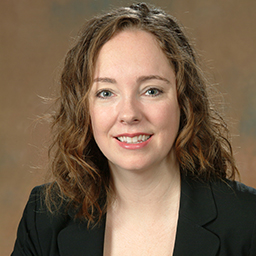
Dr. Sarah Moore, director of the Jindal School’s Business Communications Center, gave a presentation on tools and technology in business education. An important focus of her presentation was about how to evaluate or analyze the value of technology. Things to be asked when considering using a new technology, she said, include the cost, the time required to use the technology, whether it duplicates technology already in use, and whether it adds value.
In a post-conference email, Dr. Monica Shukla-Belmontes, associate dean, School of Business and Professional Studies at University of Massachusetts Global, described the conference as “very informative.” She enjoyed hearing insights from other business schools about strategies and operations in support of students
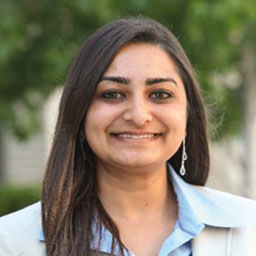
“Over the past few years, managing higher education through a pandemic has been a challenge, and learning effective strategies from other schools of business provides insights and ideas into ways that we can further help to support our students through this pandemic and beyond,” she said.
“I have had the opportunity to present at many national level conferences, but they tend to be focused on higher education in a broader context. This conference created value in furthering insights on how to better prepare and support students studying in the area of business with navigating these dynamic times. In addition, on a professional level, it facilitated engagement with others directly within the same level of leadership within the school of business context.”
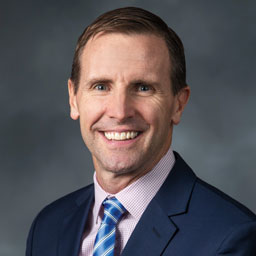
John Bingham, associate dean, Marriott School of Business at Brigham Young University, said he found the conference to be informative and engaging.
”It was helpful to hear from other university leaders about how they have adapted to the postCOVID world,” he said. “I would encourage other deans to attend future conferences.
Presenter Michele Pfund, associate dean, W. P. Carey School of Business at Arizona State University, said the topics were timely, and praised the speakers’ content as well as the “rich and engaging” group conversations.
“The conference provided a wonderful environment to collaborate on some of the most difficult problems business schools are facing,” she said. “It was inspiring to see so many different ideas, perspectives, and fresh approaches. It was equally inspiring to be in a space with like-minded people who are passionate about business education and student success.”
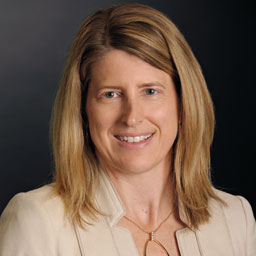
JSOM’s Annual Undergraduate Deans Conference is designed to be a leading symposium focused on designing, developing, and reinventing undergraduate programs. It encourages thought-provoking conversations, debates on challenges facing business school leaders, and discussions on emerging ideas to promote student success at every level.
This year there were 51 returning attendees and 75 first-time attendees
“We had another successful event this year,” Alborz said. “I was absolutely amazed by the level of participation and, most importantly, the willingness of assistant and associate deans across the nation to share their achievements and success stories. This was the pinnacle point of the conference, and such collaborations will no doubt keep the deans coming back. I hope that conference attendees will be able to meet in person next year.”